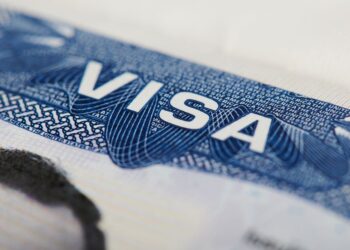On June 30, 2020, Florida Governor Ron DeSantis signed into law Senate Bill 664, Verification of Employment Eligibility. A legislative priority by the Governor, the bill was sponsored by Florida Senator Tom Lee and was passed by the Florida Legislature during the 2020 Legislative Session. It applies to public employees hired after July 1 and requires public employers and some private businesses to use a federal electronic system named E-Verify to check the immigration status of new employees; the system is run by the U.S. Department of Homeland Security.
The bill signed into law did not include the full measures both the Governor and Senator Lee were truly seeking. The original bill language mandated E-Verify for both public and private employees. After much discussion and many amendments between the Florida House and the Florida Senate, the bill ultimately just focused on requiring public employers, such as local school districts, public universities and state agencies, to use this system. As a result, private businesses that choose not to implement E-Verify are mandated to keep a three-year record of its employee’s I-9 forms, which are used by the federal government to check the identity and legal eligibility of employees to work in the U.S. Moreover, if the employers fail to keep such records, their business will face penalties.
Concerns about E-Verify
Clear opponents of this bill included Democrats from both chambers, and pro-immigrant organizations such as the Farmworkers Association. A notable criticism of the bill was voiced on the Senate floor by State Senator Jose Javier Rodriguez from Miami. He expressed concerns about how this system would prove an additional burden on businesses. He noted that it would be an additional obstacle for private businesses and criticized the state’s attempt to enforce this federal law, something even the Trump administration has not done.
The Republican Party also found itself divided regarding this immigration issue, interestingly enough in an election year, where the party platform focuses on a hardline immigration stance. Specifically, the business industries of agriculture, construction and hospitality, that heavily rely on immigrant labor, argued that this would be unnecessarily control of their business and would ultimately harm their productivity.
Therefore, these concerns led to this limited E-Verify law. Although the law is restricted to mostly government employers and employees, the repercussions will affect more than just immigrants; it will also hurt the economy, and the state of Florida as a whole. The bill was passed by the Legislature on March 19, just two weeks before Governor DeSantis ordered a statewide shutdown due to COVID-19. Concerns regarding this legislation have thus been exacerbated and its effects seem more daunting considering the high unemployment rate in Florida. According to the Florida Department of Economic Opportunity, in their most recent update with May’s unemployment numbers, the unemployment rate is at 14.5 percent, with 1,412,000 Floridians without a job. In a time where employment is difficult enough to maintain or find, many hoped that this bill would not get signed, and now it proves to be yet another impediment for unemployed Floridians who are struggling.
Another concern about E-Verify includes complications with a faulty system which can affect immigrants and nonimmigrants alike. Specifically, the Florida branch of the ACLU states that over the years, legal workers have been flagged for errors on the E-Verify government system due to typos or name changes after marriage. The Cato Institute, a think-tank headquartered in Washington D.C., estimates that since 2007, about 750,000 legal workers have been mistakenly deemed ineligible for employment. Due to this ongoing public health crisis, technical issues are certainly possible, as Floridians witnessed with the state’s unemployment website that showed error messages, did not allow people to register for benefits, and delayed processing applications.
How E-Verify Will Effect the Florida Economy
It is puzzling that this law comes into effect after months of deeming immigrants as essential workers that could keep working amid the COVID-19 shutdown. Immigrants play a critical role in Florida’s economy and this can have a harmful effect on many industries. Thomas Kennedy, Florida state coordinator for United We Dream, the largest immigrant youth-led network, stated that due to this legislation, employers are less likely to even consider immigrants because they do not want any issues with the federal authorities. Moreover, law enforcement entities can also request employee records from private employers.
According to Dr. Rick Harper, from FWD.us, a pro-immigration lobbying group, about 440,000 undocumented immigrants, who will feel the brunt of this legislation, work in Florida. They contribute up to $36.5 billion to the state’s economy and about $4 billion in state and local tax revenue. With this new law, there could be an additional loss of 140,000 workers and $10.66 billion in lost earnings. This puts Florida at an economic disadvantage and according to the National Immigration Law Center, this will prove particularly harmful for South Florida.
This legislation will affect Florida’s employment scheme, although its effects are likely not to be felt until Florida’s economy full reopens. Ultimately, it will prevent undocumented workers from getting jobs by tracking the employee’s legal status. Since 2010, E-Verify has been on the Florida GOP’s radar, although several similar bills have failed to make it to the Governor’s desk, including one in 2019. However, in 2019, Governor DeSantis signed legislation banning sanctuary cities in the state and therefore, this E-Verify bill is now the second prevalent anti-immigration bill of his administration.








